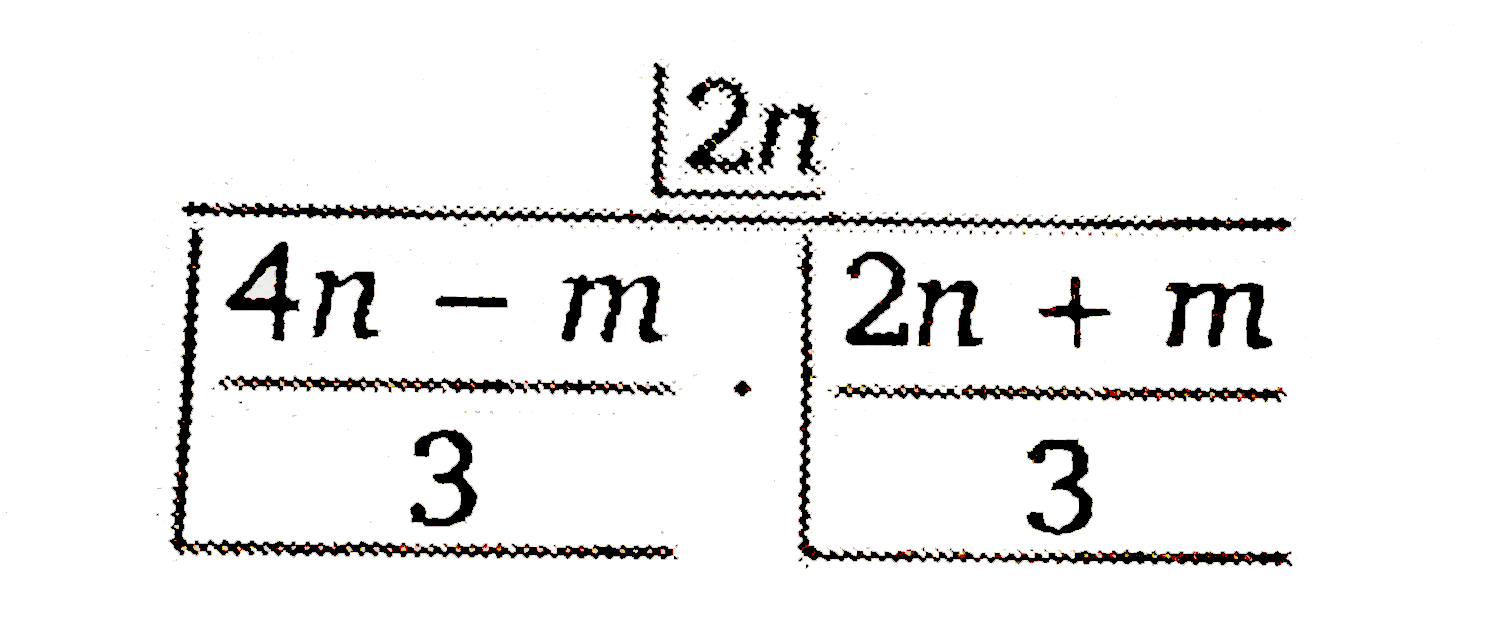The coefficient of xn in the expansion of (1+x)(1−x)n is
(−1)n−1(n−1)2
(−1)n(1−n)
n−1
(−1)n−1.n
The correct Answer is:B
To find the coefficient of xn in the expansion of (1+x)(1−x)n, we can follow these steps:
Step 1: Expand (1−x)n
Using the Binomial Theorem, we can expand (1−x)n:
(1−x)n=n∑k=0(nk)(−x)k=n∑k=0(nk)(−1)kxk
Step 2: Multiply by (1+x)
Now, we multiply the expansion of (1−x)n by (1+x):
(1+x)(1−x)n=(1+x)n∑k=0(nk)(−1)kxk
Distributing (1+x):
=n∑k=0(nk)(−1)kxk+n∑k=0(nk)(−1)kxk+1
Step 3: Combine the two sums
The first sum gives us the coefficients for xk, and the second sum gives us the coefficients for xk+1. To find the coefficient of xn, we need to consider both sums:
- From the first sum, the coefficient of xn is (nn)(−1)n=(−1)n.
- From the second sum, the coefficient of xn comes from xn−1, which corresponds to k=n−1:
(nn−1)(−1)n−1=n(−1)n−1
Step 4: Combine coefficients
Now, we combine the coefficients from both contributions:
Coefficient of xn=(−1)n+n(−1)n−1
Step 5: Simplify the expression
Factoring out (−1)n−1:
Coefficient of xn=(−1)n−1(−1+n)=(−1)n−1(n−1)
Final Answer
Thus, the coefficient of xn in the expansion of (1+x)(1−x)n is:
(−1)n−1(n−1)
Using the Binomial Theorem, we can expand (1−x)n:
(1−x)n=n∑k=0(nk)(−x)k=n∑k=0(nk)(−1)kxk
Now, we multiply the expansion of (1−x)n by (1+x):
(1+x)(1−x)n=(1+x)n∑k=0(nk)(−1)kxk
Distributing (1+x):
=n∑k=0(nk)(−1)kxk+n∑k=0(nk)(−1)kxk+1
The first sum gives us the coefficients for xk, and the second sum gives us the coefficients for xk+1. To find the coefficient of xn, we need to consider both sums:
- From the first sum, the coefficient of xn is (nn)(−1)n=(−1)n.
- From the second sum, the coefficient of xn comes from xn−1, which corresponds to k=n−1:
(nn−1)(−1)n−1=n(−1)n−1
Now, we combine the coefficients from both contributions:
Coefficient of xn=(−1)n+n(−1)n−1
Factoring out (−1)n−1:
Coefficient of xn=(−1)n−1(−1+n)=(−1)n−1(n−1)
Thus, the coefficient of xn in the expansion of (1+x)(1−x)n is:
(−1)n−1(n−1)
Topper's Solved these Questions
- BINOMIAL THEOREMBook:ICSEChapter:BINOMIAL THEOREMExercise:CHAPTER TEST
Explore 14 Videos
- BINOMIAL THEOREMBook:ICSEChapter:BINOMIAL THEOREMExercise:EXERCISE 13 (a)
Explore 27 Videos
- BASIC CONCEPTS OF POINTS AND THEIR COORDINATESBook:ICSEChapter:BASIC CONCEPTS OF POINTS AND THEIR COORDINATESExercise:CHAPTER TEST
Explore 2 Videos
- CIRCLEBook:ICSEChapter:CIRCLEExercise:CHAPTER TEST
Explore 11 Videos
Similar Questions
The coefficient of xn in the expansion of ex is
View SolutionThe coefficient of xnin the expansion of
(1+x1−x)2, is
View SolutionThe coefficient of xn in the expansion of 1(1−x)(3−x), is
View SolutionThe coefficient of xn in the expansion of loga(1+x) is
View SolutionCoefficient of xn in the expansion of (1+x)n1−x
View SolutionFind the coefficient of xn in the expansion of (1+x)(1+x)n.
View SolutionThe coefficient of xn in the expansion of (1+x)2(1−x)3, is
View SolutionIf 'n' is a positive integer then prove that the coefficient foxm in the expansion of (x2+1x)2n is :

View SolutionIf 'n' is a positive integer then prove that the coefficient foxm in the expansion of (x2+1x)2n is :

View SolutionSTATEMENT - 1 : The term independent of x in the expansion of (x+1x+2)m is (2m)!(m!)2
STATEMENT - 2 : The coefficient of xb in the expansion of (1+x)n is .nCb.
View Solution
